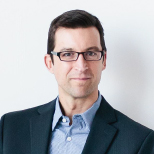December 31, 2014 — As 2014 comes to a close and we prepare to celebrate Ensia’s second anniversary this coming February, I wanted to take a moment to reflect on the journey we’ve been on over these past couple of years.
In my role as Ensia’s director, I often meet with potential partners, supporters, thought leaders and others. More often than not, one of the first questions I’m asked is, “How big is your audience?”
Thanks to Ensia’s steady growth and increasing number of republishing partners, millions of people now view our content globally. While that’s important and something we’re committed to expanding, I’m much more interested in another question that may or may not be tied to the size of the audience: “What’s your impact?”
Which begs another question: How do we accurately measure impact across a changing media landscape? Clicks? Comments? Unique visitors? Social media followers?
Those all are important, but what I really want to know is, did we make a difference in the world?
Did any business leaders reassess their supply chain after reading about the emerging zero waste world or recycling opportunities for rare earth metals? Did utility managers question the price of water in their community after seeing our story on this undervalued resource? Did investors look to green bonds to boost their bottom line and benefit the environment? Did consumers change their shopping habits because of our stories on palm oil, the future of meat or food packaging? Did someone donate to a conservation organization in hopes of stemming the illegal wildlife trade after reading our interviews with Peter Knights of WildAid or Iris Ho with Humane Society International? Was a new partnership formed or conversation started after reading a compelling Voices commentary?
We’ve heard stories of these actions starting to take place, and that gives us hope that we’re on the right track. For example, we were able to connect a palm oil plantation manager in Colombia with researchers in Colorado who reported on fixing issues around methane emissions from palm oil plantations. The Canadian chapter of the Wildlife Conservation Society approached author Ed Struzik to deliver the keynote speech at its annual conference after reading his feature story on the changing Arctic. And commentaries such as the one we published on GMOs have led to a rich online discussion among people on both sides of the issues.
Sure, I could tell you about page views, unique visitors and media partners — all of which are important to our success. But at Ensia and at the Institute on the Environment, our home institution, making a difference in the world is what inspires our work. What it boils down to is this: One unique visitor is enough — if it’s the right visitor, and that visitor is inspired or empowered by a story to change the world.
As I wrote earlier this year, it only takes a moment or a simple statement to transform someone’s life — and improve the environment we all depend on.
In 2015 we’ll continue to publish high-quality, trusted journalism. We’ll also continue to look for underreported stories, ask provocative questions and shine a light on innovative solutions — all while exploring new ways to measure and track impact.
Our goal is to challenge you to think differently while offering a sense of hope. As you think back over this past year, we hope you recall a time when an Ensia story opened the door to a new insight or led you to take action on an issue. If so, we’d love to hear from you via email, Facebook or Twitter.
The challenges facing the world today are daunting, but what if we focused more on the people, places and projects working toward solutions and a more positive future? At this point we don’t have the luxury of sitting back and complaining. It’s time to get to work and have an impact. ![]()
Todd Reubold | Ensia director and founding editor
Photo by Thomas Leuthard (Creative Commons | Flickr)
Ensia shares solutions-focused stories free of charge through our online magazine and partner media. That means audiences around the world have ready access to stories that can — and do — help them shape a better future. If you value our work, please show your support today.
Yes, I'll support Ensia!
